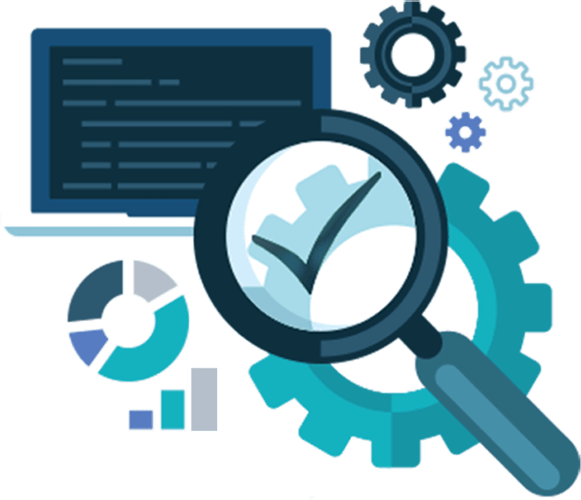Software Testing Training in Indore
Infograins TCS has developed a comprehensive Training Program for Quality Assurance (QA), also known as Software Testing, aimed at preparing individuals to excel in the IT industry. We are Providing Software Testing training in Indore which includes in-depth training on software testing principles, methodologies, and best practices. Interns can learn various testing techniques, test planning, test case design, API Testing, execution, and reporting. As software testing helps to identify defects early in the development lifecycle, ensuring that the final product meets quality standards and satisfies user requirements.
Software Testing is the process of executing an application with an intent to identify the bugs present in the application. The key objective of Software Testing is to ensure that the application meets the requirements specified in the requirements document. The software testing course at Infograins IT Training is aimed at mastering you in both Manual and Automation Testing. We also suggest customized training to suit your learning needs.
The training program is designed to Deliver skills & knowledge to increase a competitive advantage in starting / enhancing a career in software testing. Trainees will receive up-to-date basic to advance 100% Practical training in multiple areas in Software Testing and a thorough understanding of real-world projects. Successful completion of this program leads to placement relief. And this will continue till you are getting the Job.
For more details on Software Testing Training in Indore do contact us on training@infograins.com or call us at +91 9691599314
Software testing can be stated as the process of certifying and verifying that a computer application/program/product:
Software testing can be defined as the systematic process of evaluating and verifying that a computer application, program, or product meets specified requirements and functions correctly. It involves examining various aspects of the software, such as functionality, performance, reliability, usability, security, and compatibility, to identify defects or errors and ensure its quality and readiness for deployment. Through testing, software engineers aim to detect and address issues early in the development lifecycle, ultimately delivering a reliable and user-friendly product to customers.
Learnings from Our Software Training program
-
A software testing program typically covers a range of topics and skills to equip individuals with the knowledge and techniques needed to excel in the field of software testing. Here are some common learning objectives and areas of focus in a software testing program:
1. Introduction to Software Testing: Understanding the importance of software testing in the software development lifecycle, including its goals, principles, and benefits.
-
2. Software Development Lifecycle (SDLC): Familiarization with different phases of the SDLC, such as requirements analysis, design, implementation, testing, deployment, and maintenance.
3. Types of Testing: Exploring various types of software testing, including:
Functional Testing
Non-functional Testing (Performance, Usability, Security, etc.)
Manual Testing
Automated Testing
Regression Testing
Integration Testing
System Testing
Acceptance Testing
-
4. Testing Techniques and Methods: Learning different testing techniques and methods to design effective test cases and scenarios, such as:
Equivalence Partitioning
Boundary Value Analysis
Decision Table Testing
State Transition Testing
Exploratory Testing
Risk-Based Testing
-
5. Test Planning and Management: Understanding the process of test planning, including:
Test strategy formulation
Test plan creation
Test estimation
Test scheduling
Test documentation
-
6. Test Case Design: Developing skills in creating comprehensive test cases and test scenarios to validate software functionality, requirements, and business logic.
7. Defect Management: Learning how to identify, report, track, prioritize, and manage defects or issues encountered during testing using defect tracking tools.
-
8. Test Execution and Reporting: Understanding how to execute test cases, record test results, and generate test reports to communicate findings to stakeholders effectively.
-
9. Automation Testing: Introduction to automation testing tools and frameworks, as well as hands-on experience in writing automated test scripts to improve testing efficiency and coverage.
-
10. Performance Testing: Learning the fundamentals of performance testing, including load testing, stress testing, and scalability testing, to evaluate software performance under different conditions.
11. Security Testing: Understanding the importance of security testing and learning techniques to identify vulnerabilities and ensure the security of software applications.
-
12. Agile and DevOps Testing: Familiarization with Agile and DevOps methodologies and their impact on software testing practices, including continuous integration, continuous testing, and continuous deployment.
-
13. Industry Standards and Best Practices: Keeping abreast of industry standards, best practices, and emerging trends in software testing to ensure relevance and competitiveness in the field.
-
14. Soft Skills: Developing soft skills such as communication, teamwork, problem-solving, and critical thinking, which are essential for effective collaboration and success in the software testing profession.

